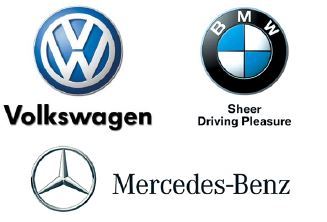Controversy is mounting over local importers of Mercedes-Benz, BMW, Volkswagen and other car brands for allegedly giving out price cuts when there were de facto excise tax refunds.
The Fair Trade Commission on Wednesday said that it is considering launching an investigation to see whether the companies have imported cars at tax-deducted prices, then sold them at lower prices as if they were giving a special discount when all they were actually doing was reflecting the tax cut.
The special excise tax deduction -- from 5 percent to 3.5 percent -- was temporarily granted between October and December 2015. The amount refunded was expected to be up to 1 million won ($810) a car.
The scheme turned out to be a success with the sales of imported cars jumping 26.1 percent during the last quarter of 2015, compared to the same period in 2014. Domestic carmakers also saw a sales increase of 18 percent during the same time.
With carmakers fearing a fall in sales, the government in February announced the extension of the tax cut until June, with buyers in January to be retroactively covered. Soon after this announcement, local carmakers started giving out refunds by transferring the amount of tax refunds to individual customers’ bank accounts.
However, some importers declined to give such refunds, citing that the refund had been given out to their customers as part of their sales promotions held in January.
“As we know that sales will fall after the tax refund concludes, we have maintained the low price by supporting the tax cuts from our own expense. We have promoted that the ‘price same as that during the excise tax deduction period will continue,’” a spokesman for one of the foreign car brands said.
“The extension of tax reduction was announced after the January promotion, and nobody saw it coming in February, so it was okay to call it a special promotion. It is technically not deception,” he said.
An FTC official refused to confirm any details of the investigation, but said that the case is a lot more complicated than it seems.
“Many things from the point of customs clearance to marketing and customer relations should be considered in dealing with imported cars,” he said. For instance, cars subject to the tax cut should have passed the customs clearance between October and December 2015, but many customers believed the tax refund was available at the time of the purchase.
Law firm Barun, which launched a class suit against Volkswagen Korea over the emission-rigging scandal last year, announced Monday that it will launch another massive lawsuit once the FTC concludes the investigation.
“If the companies have sold cars that have passed the customs clearance between October and December with the lowered excise tax, and sold them for cheaper price as if they have paid for the customers’ excise tax, that could be deceptive marketing or exaggerated marketing,” Barun lawyer Ha Jong-sun said. “And the FTC also needs to see if carmakers have properly given the tax refunds to all customers even between October and December 2015,” he added.
Some industry insiders said the investigation itself could deal a blow to the car brands.
“Last year has been cruel to foreign carmakers here. Many importers have been in hot water, from Volkswagen’s emissions test fabrication scandal to the spontaneous combustion of BMW cars and a Mercedes customer’s rampage toward sloppy aftersales,” an industrial insider said.
“Even if the investigation turns out in favor of the carmakers, they will have to deal with bad reputation and mistrust for a while. Because of the value chain and marketing, the dealers‘ network is very complicated, a lot of people will be involved and affected in the end,” the insider added.
The Kyunghyang newspaper reported that the number of people who bought cars in January could be up to 10,000 and a considerable number of them may not have received the refund.
By Bae Ji-sook (baejisook@heraldcorp.com)



![[KH Explains] No more 'Michael' at Kakao Games](http://res.heraldm.com/phpwas/restmb_idxmake.php?idx=645&simg=/content/image/2024/04/28/20240428050183_0.jpg&u=20240428180321)


